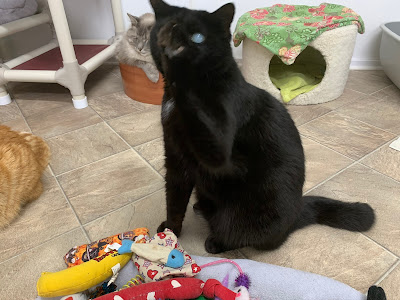Blind and Deaf cats
The causes of blindness and deafness in cats can range from genetics to infections and diseases. Congenital defects and inherited diseases can lead to blindness and deafness, particularly in purebred cats. Young cats can also be born deaf or blind due to exposure to infection or toxins in the womb.
The quality of life for a blind or deaf cat depends on the severity of the condition. Some cats can adapt to their condition and live a normal life, while others may require special care and attention to ensure their safety and well-being. Generally, cats with these conditions should be kept as indoor-only pets as they are more prone to accidents or becoming lost.
If you have a blind or deaf cat, there are a few things you can do to help them. Make sure your home is a safe environment, with no sharp objects, cords, or other hazards that may cause an accident. Keeping furnishings in the same place and providing them with familiar scents and objects can help them adjust to their new environment. Additionally, you can use vibration to alert them to your presence, and use extra verbal cues to communicate.
All cats, regardless of their abilities, deserve a loving home. With the right care and attention, a blind or deaf cat can still have a happy and fulfilling life. If you’re considering adopting a cat with one of these conditions, make sure you are prepared to provide the special care they need.



Comments
Post a Comment